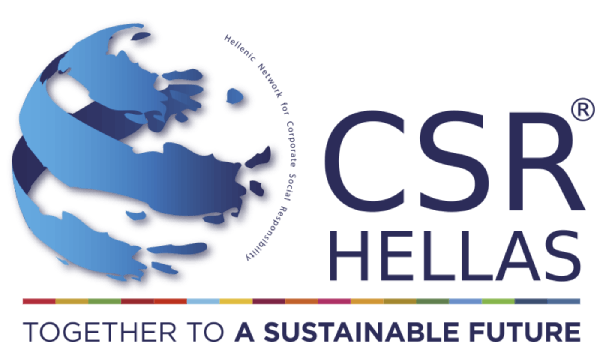INTRODUCTION
From our lunch box to the plastic bag from our last supermarket’s trip, plastic has become our new best friend, making our life far easier. In 70 years, the material’s world production has literally exploded, passing from 2 million metric tons (Mt) in 1950 to 380 Mt in 2015, namely a compound annual growth rate (GACR) of 8.4%. In Europe, the post-consumer plastic waste recycling rate is above the world average, but still considerably lagging when compared to other materials.
Marine currents carry plastic and concentrate them in specific subtropical gyres, often described as the ocean’s garbage patches. There are five of them. The sadly most infamous one, the Great Pacific Garbage Patch, was discovered in 1997 by the oceanographer and skipper Charles J. Moore. Since its finding, this area has tripled and represents today a surface equivalent to a third of Europe and can be as deep as 30 meters. “Once in these patches, the plastic will not go away by itself. The challenge of cleaning up the gyres is that the plastic pollution spreads across millions of square kilometers and travels in all directions,” testifies The Ocean Clean Up Organisation.
European Commission through its action plan, “Strategy for Plastics in A Circular Economy”, has identified plastic as a key priority. Moreover, the Commission wants to drive investment and innovation towards circular solutions and undertake actions to tackle the sources of marine litter, within its greater framework of European Green Deal.
Companies and industry associations are encouraged to submit their pledges on how to boost the uptake of recycled plastics and circular economy in general. IMS-Luxembourg took the lead in September 2018 through the launch of Zero Single-Use Plastic manifesto, having a clear objective, to eliminate single-use plastic of participating companies by the end of 2020. Already more than 60 companies have signed the manifesto, while the initiative expanded in Greece and Cyprus. In these countries the problem of plastic pollution in the coast yard is getting worst year-by-year.
DESCRIPTION OF THE CHALLENGE
Plastic, this wonderful invention of humankind that facilitates our everyday life turns out to be a ticking time bomb. However, solutions do exist to avoid an uncontrollable situation. A true race against time in a world of plastic.
From 4.8 to 12.7 Mt of plastic waste ends up in the ocean each year. According to the Ellen MacArthur Foundation, this quantity is equivalent to dumping the contents of one garbage truck into the ocean every minute. If nothing is done to improve the waste management infrastructure, this is expected to increase to two per minute by 2030 and four per minute by 2050. “It never decomposes and will remain there forever. If nothing changes, by 2050 all the plastic in the ocean could weigh more than all the fish”, warns Sky Ocean Rescue.
We all have seen the shocking photographs of seabirds, marine mammals and turtles trapped in plastic waste. That situation is no more acceptable and businesses from now on could be part of the solution instead of problem creator. Coastal countries like Greece and Cyprus face a huge challenge due to millions of tourists visiting the islands, while at the same time the use of single-use plastics became even worst due to the Coronavirus pandemic and the reality of extensive use of single-use plastics through self-protection equipment.
CONTENTS OF THE SESSION
CSR HELLAS will present its newly formed initiative launched in 2020 and implemented onwards seeking drastically reduction of the consumption of other disposable plastics in the businesses operating facilities, with the ultimate goal to enhance recycling and reduction of the total amount of plastic waste. IMS-Luxembourg will share its experience through the two years’ work partnering with businesses in order to reduce the use of single-use plastic while creating awareness among their stakeholders.
Distinguished academics will share evidence regarding the need to take action towards circularity and adoption of sustainable alternatives for the use of utensils / multipurpose packages both within the company and in its sphere of influence.
Business leaders will share their experiences from relevant initiatives undertaken towards elimination or usage reduction of specific single-use plastic, creation of alternatives containers and packaging products, as well as their actions and activities in order to change their culture and the consuming behaviour of their customers, through awareness, education but mostly through investments in innovation. Business experts will also share their experiences from working with their employees internally as well as with their peers within their sectoral and associations, but also with their suppliers, customers and local communities, setting common goals and ways of work.
WHY ATTENDEES SHOULD PARTICIPATE
The Evolution of Responsible Management of Single-Use Plastics (RMSUP) is becoming increasingly important for businesses in specific sectors but also for all businesses that are working towards the effectuation of the Sustainable Development Goals. Participants will:
- Identify Responsible Management of Single-Use Plastics as a dynamic ESG issue relevant across-industry that need to be prioritized by companies concerning the sector of their operation within their materiality process and sustainability initiatives and integration.
- Integrate Responsible Management of Single-Use Plastics in order to meet customers’ concerns related to sustainability integration and incorporate targeted approaches into business operations, corporate communication and within the wider relations to stakeholders on a voluntary basis.
- Learn about initiatives, frameworks and tools related to Responsible Management of Single-Use Plastics that can be assistive in the process of incorporating sustainability and SDGs within the company context in a responsible manner essentially nowadays for maintaining economic success.
- Understand how Responsible Management of Single-Use Plastics programmes that have already been created and implemented by businesses, business networks and academia could be synergetic and complementary.
